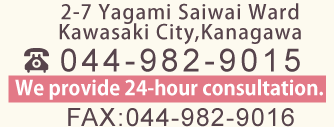Question 3; What should I do before receiving home care?
You should choose your home doctor, prepare care insurance, solve concern about medical expense.
Social workers (MSW) of regional medical liaison office of hospitals will listen to your problem.
Contact social workers of the hospital you are visiting or staying in.
Preparing care insurance is also important.
You or your representative can go to care insurance section of municipal offices to ask about care insurance.
If you let us know who your hospital doctor or house call doctor is, the process will be smooth.
After applying for care insurance, you should choose your care manager.
Doctors are managers of treatment, and care managers are managers of care giving.
You should choose a care manager who can contact your doctor, work near your home, and has a good reputation.
Even if you are told to leave the hospital suddenly, you don’t need to worry.
You can find a care manager to arrange for a care bed quickly depending on the situation.
Although it usually takes a month for your care insurance to be approved, if it’s expected to be approved certainly you can start using the care bed before the approval. So, contact your care manager.
Nowadays people who support home care, such as care managers, social workers, visiting nurses and house call doctors often have a meeting in your hospital before you leave it. This is called a pre-discharge conference.
This is the first time all the members gather, so it’s a great chance for you to solve your concerns.





